With the access doc sector booming, producers of some of the best recent examples tell Andy Fry about the challenges of immersing yourself in your subject’s life, and the importance of authenticity, timing and flexibility
The factual TV business has had a tough couple of years, but one sub-sector that has thrived is the celebrity access or follow doc. Appealing across demographics, celebrity access singles and series are both linear tentpoles and streamer subscription drivers.
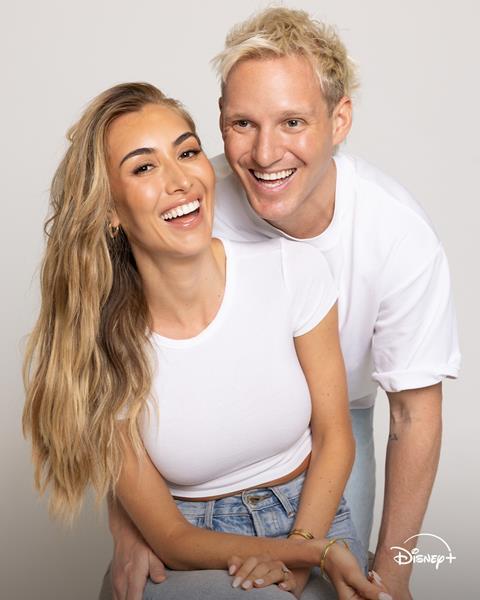
It’s a trend underlined by Disney+, which recently unveiled a 10-part series about Coleen and Wayne Rooney (The Rooneys), and another about Made In Chelsea stars Jamie Laing and Sophie Habboo (Jamie And Sophie: Raising Chelsea).
Unveiling the slate, unscripted executive director Sean Doyle – who had already ushered in Finding Michael, Brawn: The Impossible Formula 1 Story and Flintoff – says combining “talked-about household names and their life experiences has hit the right note with our audiences”, with authenticity key.
On the face of it, follow docs look straightforward to make – but getting talent on board requires trust and the establishment of editorial rules. Failure to align can lead to situations like the collapse of Spike Lee’s docuseries on Colin Kaepernick for ESPN, axed over “creative differences”.
Demi Doyle runs Navybee, a label within Banijay’s Workerbee that makes talent-led premium documentaries like Amazon Prime Video’s Molly-Mae – Behind It All. She says: “What makes this genre of documentary so intense is that you are investing yourself in the subject’s life. Your production team isn’t just shooting on specified days, they’re living under the subject’s roof and interacting with their families. When you ask someone to open up their life, you have to be present to build that trust.”
“Asking difficult questions and putting the subject out of their comfort zone is still vital to the process”
Demi Doyle, Navybee
Long-term proximity can often end with the production team and subject becoming friends. But Navybee’s Doyle says: “Asking difficult questions and putting the subject out of their comfort zone is still vital to the process. Ultimately, if the subject isn’t willing to go there, what is the point of the show? They have to wear their hearts on their sleeves because viewers want to see the real person behind the image.”
Given the intrusive nature of this process, you’d think subjects would want to see rushes or have an executive producer/editing role. Yet, apart from a few cases (more on that later), producers don’t allow this. Some might permit sight of the final edit before TX, but this is typically about safeguarding the subject rather than storytelling.
Optomen joint chief executive Nick Hornby says his company wouldn’t cede editorial control to the talent – a brave move, considering one of its hits is At Home With The Furys, a Netflix series that goes behind the scenes with boxing legend Tyson Fury.
“We never show footage as we go along; we ask our subjects to be patient and wait until it’s done. The point about making these shows is that you have built a relationship all the way through, so you’re not hijacking them with a surprise at the end.”
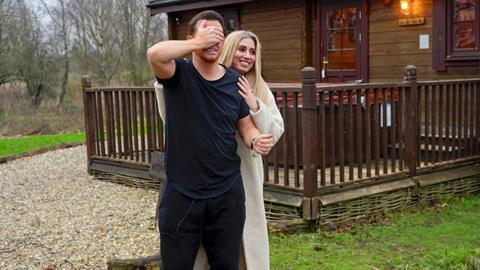
Optomen is working on a second season of the Tyson Fury show and has also made follow docs like Stacey & Joe for BBC1 and The Princess Diaries for ITV2. But Hornby says producers need to be sure that immersive access is the right approach before they embark on such an exacting undertaking.
In the case of Sky’s Becoming Madonna, for example, the firm built a show around audio tapes and interviews with friends and family. “Sometimes,” says Hornby, “there is a freedom in unauthorised biographies”.
In an era of always-on 24/7 celebrity access, key questions that often come up when pitching celeb access docs are “why now?” and “what’s the story?” says Noah Media Group co-founder and chief exec John McKenna, whose credits include Hatton, about the much-loved late boxer Ricky Hatton,which came out in 2023, and the recent Football’s Financial Shame: The Story Of The V11 (BBC and Fremantle).
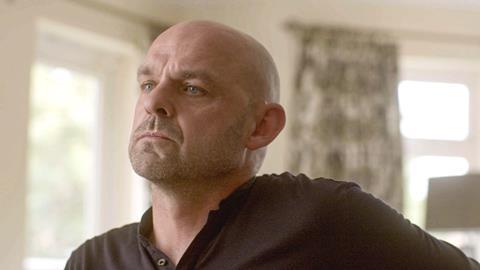
McKenna says the V11 film appealed as a story “much bigger than just football and relevant to everyday people”. But it was particularly complex as it “required the building of very sensitive relationships with high-profile players, who were in very difficult situations because of where they had placed their trust. We were asking them to give that trust to us for the film.”
Navigating that delicate process has taken many years. Sometimes the story isn’t laid out on a plate in an obvious way, observes McKenna.
“In another of our films, Finding Jack Charlton, the two directors, Pete Thomas and my co-founder Gabriel Clarke, went to meet Jack and his family early in production and realised he was living with dementia. When the family gave us their blessing to continue to document Jack’s life, the result was something very special and authentic.”
Changing narratives
Optomen’s Hornby also notes that stories can change – meaning it’s important to be able to pivot mid-production. “The thing about people’s lives is that shit happens. When we started making Tommy: The Good. The Bad. The Fury with Tommy Fury, we had no idea what was going to happen in terms of his boxing career – pulling out of a fight with the UFC’s Darren Till and then ending up in Budapest.”
This change of direction is common in celebrity access docs. Navybee’s Molly-Mae film was supposed to be about her marriage to Tommy Fury, but after their temporary break-up, the story shifted to her life as a single mother and her first fashion brand. The couple announced their reunion earlier this year.
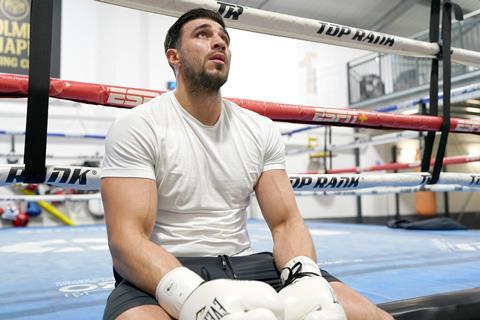
Meanwhile, filmed over three years, Expectation’s Ozzy Osbourne: Coming Home was meant to be about the Osbourne family’s return to the UK but subsequently incorporated insights into his illness. Then came his farewell concert and death in July 2025.
As for why one producer gets selected over another, track record in this area clearly plays its part. Sister label Dorothy Street Productions, for example, followed up Pamela Anderson follow doc, Pamela, A Love Story, with Coleen Rooney: The Real Wagatha Story. The company since secured commissions for Jamie And Sophie: Raising Chelsea (Disney+) and Victoria Beckham (Netflix).
Having previously worked at Optomen on At Home With The Furys, Navybee’s Doyle was also well placed to take on the Molly-Mae project. Now she is also working on Gemma Collins: Four Weddings And A Baby for Sky, and with former Little Mix star Jesy Nelson on a six-parter for Prime Video.
Aside from track record, Doyle also reiterates the point about needing to be totally invested in the talent. “We’re not planning on making loads of series because it is important to be available at all times – even if that means talking to the talent at 3am.”
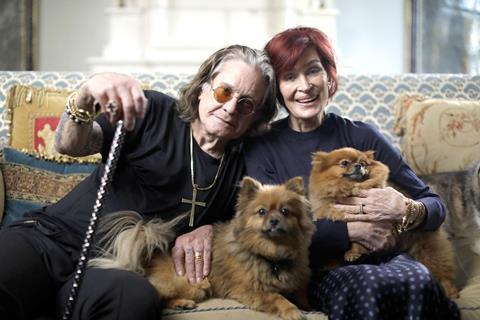
The power of these shows has not gone unnoticed. Julian Bird’s financier-turned-studio Lorton Entertainment pops up as a co-producer on many talent-led films and series – an indication, perhaps, of the value of access IP.
And there has also been a run of talent making follow docs under the umbrella of their own companies – a development that perhaps threatens independence and authenticity. Beckham, for example, was produced by David Beckham’s own company Studio 99, and The Last Dance involved NBA legend Michael Jordan’s Jump 23 as a co-producer. Another Netflix doc, Being Gordon Ramsay, is being produced by the chef’s own outfit, Studio Ramsay Global.
Beckham’s long-time associate and producer on Beckham, Nicola Howson, spoke on this subject at the Edinburgh Television Festival 2024, identifying the involvement of director Fisher Stevens as key to giving the project editorial rigour.
Beckham also addressed the issue of authenticity when interviewed by Sister co-founder Jane Featherstone at the Royal Television Society (RTS) London Conference. He said Stevens “made me feel uncomfortable from the moment we sat down to talk, to the moment I finished”, adding that he saw nothing of the resultant show until its premiere.
For the most part, the involvement of a talent-led production entity only comes about when the celeb in question has superstar status or has broader production ambitions – as is the case with both Beckham and Ramsay.
However, there’s also a model where the talent signs an overarching deal with a platform and the producer joins the party later. For example, Serena Williams signed a deal with Amazon Studios, before becoming an exec producer on the resulting docuseries from Plum Pictures.
Talent control
Whether it make sense for most celebrities to create a label to support their own follows docs is moot. Navybee’s Doyle says “setting up a production company is hard. Do they really want the hassle of doing that when they can surround themselves with talented producers who know how to deliver something authentic to audiences?”
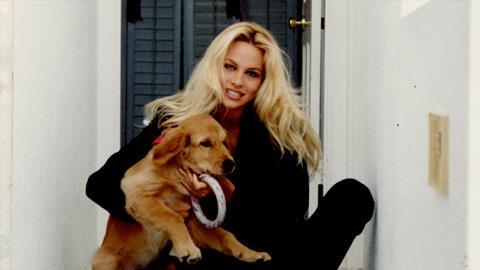
Interestingly, Studio 99 is partnering Dorothy St on the Victoria Beckham project, which looks at her progression from pop star to fashion entrepreneur, and Disney+’s Jamie Laing and Sophie Habboo project is a co-pro between Dorothy St and Jampot Productions, Laing and Habboo’s own company. The Made In Chelsea stars are also executive producers.
Perhaps this kind of collaboration is a way for the talent to retain some executive control over the process while ceding editorial primacy to a third party.
George Cowin, chief executive and co-founder of digital content agency Cowshed Collective, has recently formed a talent division and says one emerging factor that could play into the question of editorial control is the 360-degree expertise modern talent brings.
“Anyone who’s established themselves in the creator economy will have a detailed knowledge of most areas of production. They’re also better placed than anyone to understand their audience, so when producers think about access docs featuring this next generation of talent, they may want to lean into that expertise.”
“Working with talent can be a joy, but no one ever said it was easy”
Nick Hornby, Optomen
Social also brings other considerations. For Noah’s McKenna, it poses a compelling question about whether there is an outlet “for all of the great interview material that never got into the final cut. We have a treasure trove of footage on our shelves from our 2018 film Bobby Robson: More Than A Manager.”
And with talent constantly in the spotlight, there’s always a question as to whether there is anything new to say. “Working with talent can be a joy, but no one ever said it was easy,” Hornby says. “Every time, we ask ourselves what’s new, because if we don’t have that, it won’t work for anyone.”


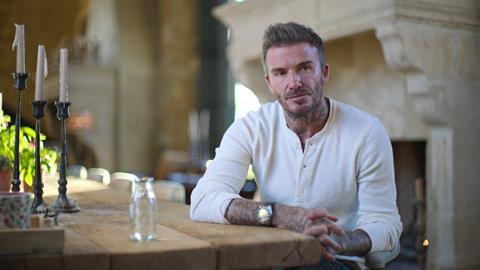






No comments yet